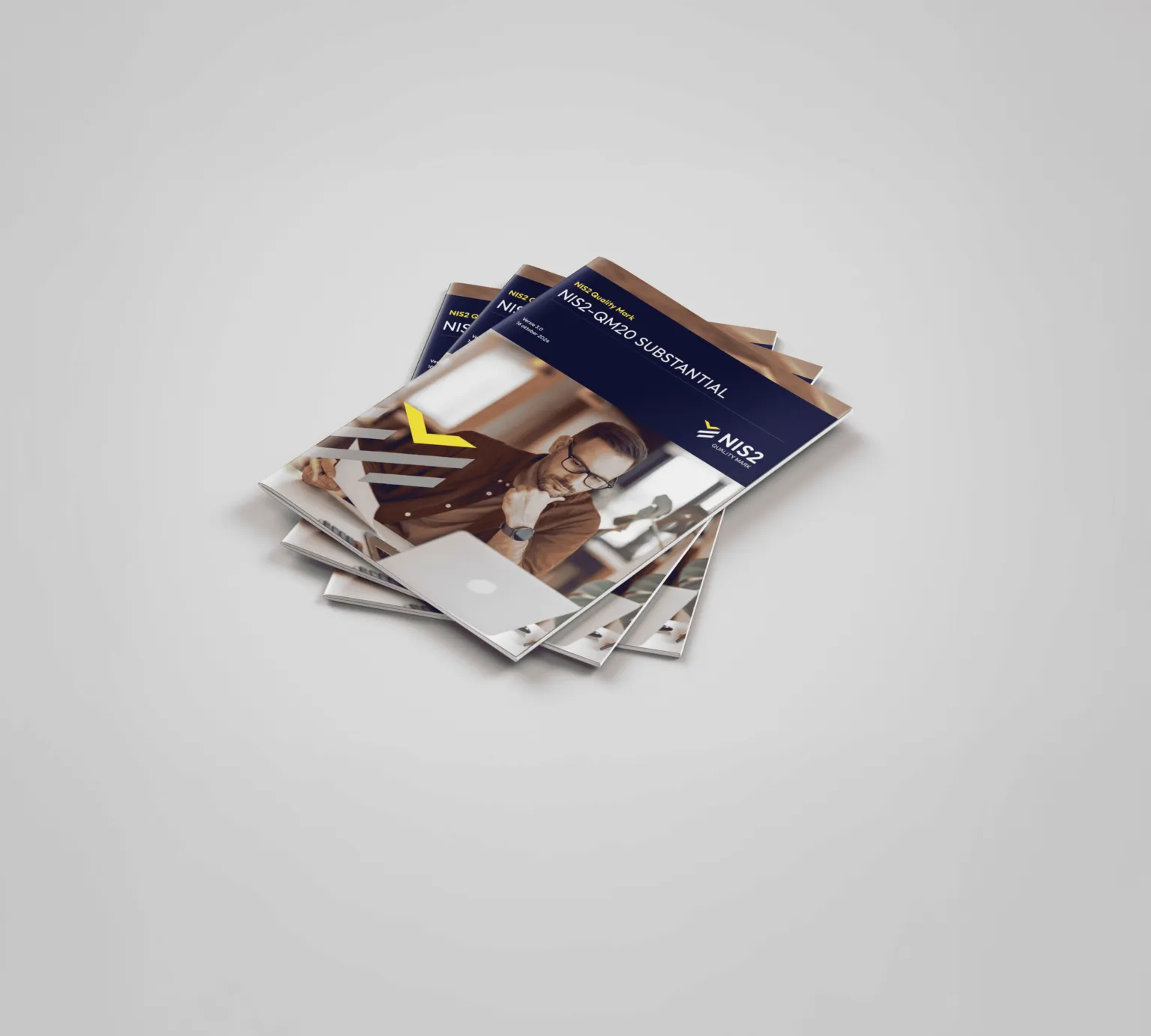
The importance of the NIS2 Quality Mark
Companies that obtain the NIS2 Quality Mark demonstrate that they meet the stricter requirements of the NIS2 directive. Proven cybersecurity through this certification also makes it easier to obtain cyber insurance. Banks also take this into account when granting loans to SMEs. Furthermore, cybersecurity has now become a standard part of the risk assessment when selling your business.
The NIS2 Quality Mark is your “license to operate”.
The NIS2 Quality Mark: achievable and scalable
The NIS2 Quality Mark is a practical and scalable standard. With a modular system comprising three levels (QM10, QM20, and QM30), companies can implement the appropriate level of security measures tailored to their risk.
NIS2-QM10 BASIC
For SMEs with a limited risk that supply directly to NIS2-obligated entities.
NIS2-QM20 SUBSTANTIAL
For companies with increased risks due to their role or access to sensitive data, and that supply directly to NIS2-obligated entities.
NIS2-QM30 HIGH
For critical companies in the supply chain that pose a significant risk of disruption in the event of cyber incidents and that supply directly to NIS2-obligated entities.
Our experts are ready to assist you
Whether you are just starting your NIS2 journey or have already made significant progress, our experts are happy to assist you. With knowledge of both the legislation and practical experience, they will work with you to find the right approach for your organisation. This way, you enter the certification process well-prepared and with confidence.
Which companies are suppliers under NIS2?
It is the essential and important NIS2 entities themselves who determine which direct suppliers pose a risk. With the NIS2 Quality Mark, they can easily comply with this obligation. If you want to learn more about NIS2 or find out whether you will be affected by it, attend a webinar at Samen Digitaal Veilig.
Below is an overview of examples of suppliers who may fall under NIS2:
- IT service providers
- Managed Service Providers (MSPs)
- Cloud providers
- Data centres
- Network companies
- Cybersecurity companies
- Software developers
- SaaS providers
- Hosting providers
- Telecom companies
- IT audit firms
- Etcetera.
- Industry, manufacturing & infrastructure
- Machine builders
- Industrial automation companies (OT/ICS)
- Suppliers of production lines
- Suppliers of industrial components
- Parts suppliers
- 3D printing companies
- Energy and water managers
- Smart technologies (IoT)
- Factory automation specialists
- Technical maintenance companies
- Etcetera.
- Suppliers of food processing machinery
- Packaging industry
- Refrigerated transport and warehouse management companies that pose a risk in the supply chain.
- Additionally, railway logistics, container terminals, and supply chain management companies can also pose a risk.
- Etcetera.
- Raw material suppliers
- Semi-finished product suppliers
- Chemical suppliers
- Transport companies
- Logistics service providers
- Shipping companies
- Aviation suppliers
- Etcetera.
All companies that create digital, physical, or operational dependencies within the supply chain of an essential or important NIS2-obligated entity must demonstrably operate securely in case of a risk.
What certificates are required?
If your company supplies large organisations that, in turn, supply NIS2 entities, or if you supply directly to NIS2 entities, then NIS2-QM10 is the certification standard you can use to demonstrate compliance with the required security standards. This is the standard norm for most companies active in the supply chain.
Our partners are available to provide you with support
Questions? We have the answers!
NIS2 is all about managing risks
When a supplier is insufficiently secured, this can pose a risk to the NIS2 companies they serve directly or indirectly. This may lead to vulnerabilities in IT, digital communication, physical infrastructure, electronic data interchange (EDI), supply and ordering systems, and even in products containing operational technology (OT) software. OT software controls machines, whether or not they are connected to the internet. Since NIS2 adopts an ‘all hazards’ approach, various types of risks are considered, not just those related to IT.
The key rule of thumb is: the greater the impact of your products or services on your customer, the higher the risk you pose, and consequently, the higher the standard you must meet. For most SMEs in the supply chain, the NIS2-QM10 certificate is sufficient. So, do you supply companies that themselves supply NIS2 entities, or do you supply directly to an NIS2 organisation? And are you not an IT or OT company? Then NIS2-QM10 is the minimum certification standard to demonstrate that your company has implemented adequate security measures.
If you believe your company may pose a higher risk—for example, because you have access to highly sensitive data, your product is an essential component for your customer, or your product is difficult to replace—discuss a possible higher certification standard with your customer. If you are unsure whether you need a higher-level certificate, please contact the support desk for advice.